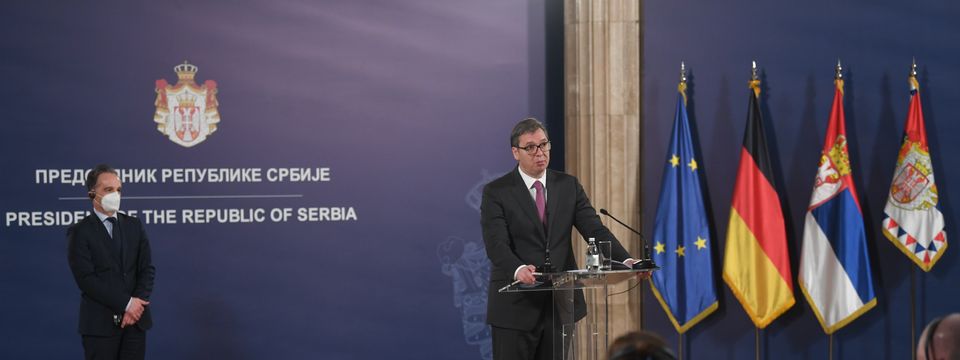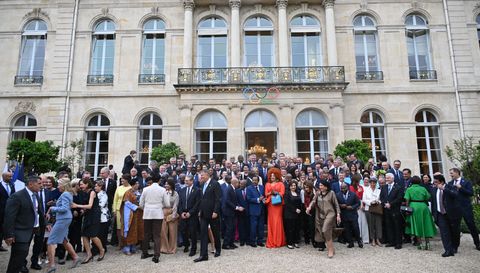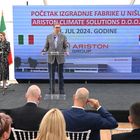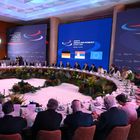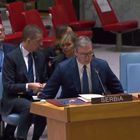News
23.04.2021. - 13:25
Meeting with the Minister of Foreign Affairs of the Federal Republic of Germany
President of the Republic of Serbia Aleksandar Vučić met today with the Minister of Foreign Affairs of the Federal Republic of Germany, Heiko Maas, to discuss economic cooperation, the process of European integration of Serbia, the continuation of the fight against the COVID-19 pandemic and the challenges of the mass vaccination process, as well as about Kosovo and Metohija and the situation in the region.
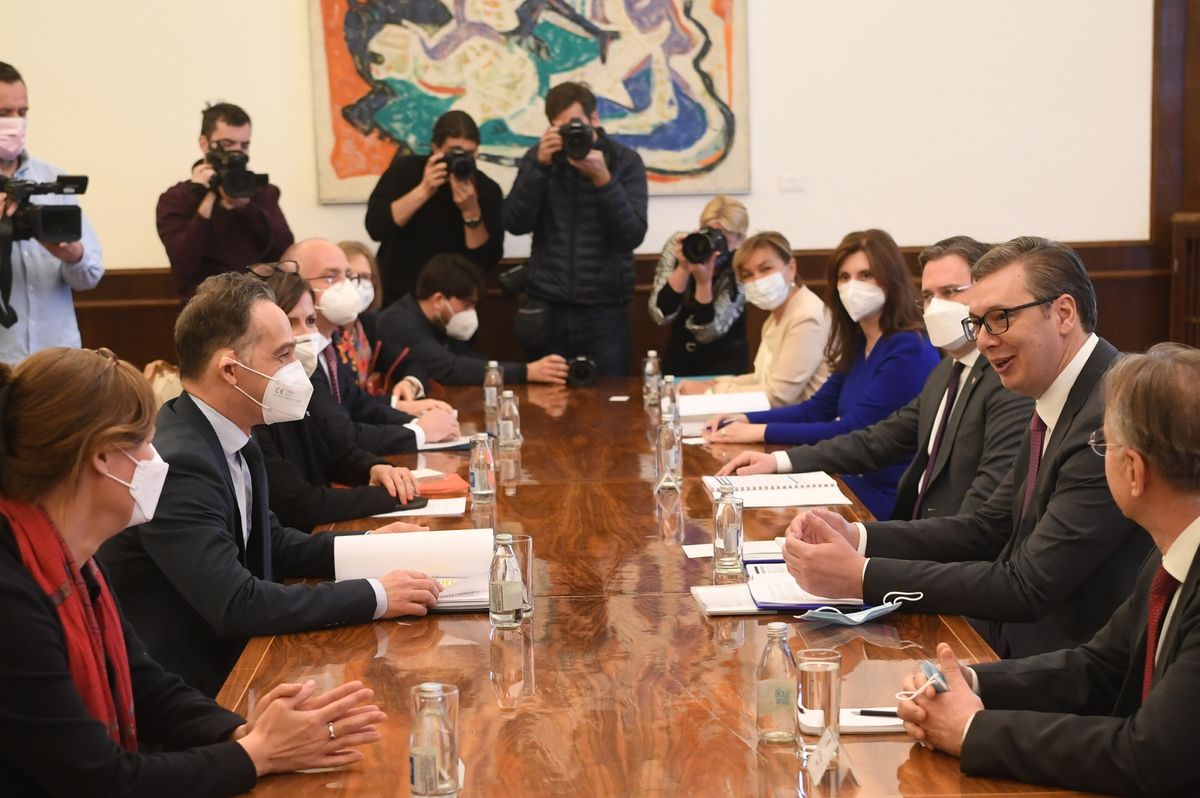
Photo: Presidency of Serbia / Dimitrije Goll
"Serbia has the closest economic relations with Germany and convincingly the largest trade exchange, which grew during the coronavirus pandemic last year. There is no external partner that is as important to us in economic terms as Germany," said President Vučić in his address following the meeting. He stated that last year, during the pandemic, there was an increase in trade, which is not the case with any other country.
President Vučić pointed out that between 2010 and 2020, Serbia increased trade with Germany by as much as 2.5 times, and increased exports by 2.9 times, adding that a few years ago the total number of employees in German companies in Serbia was 17,000, and today it exceeds 70,000.
"These are serious companies, whether large or family firms. They also change the consciousness of our people, we are becoming more responsible, diligent, and that brings new value," said President Vučić, emphasising that the visit of the German Foreign Minister to Serbia confirms the importance of political dialogue and promotion of bilateral cooperation between Serbia and Germany.
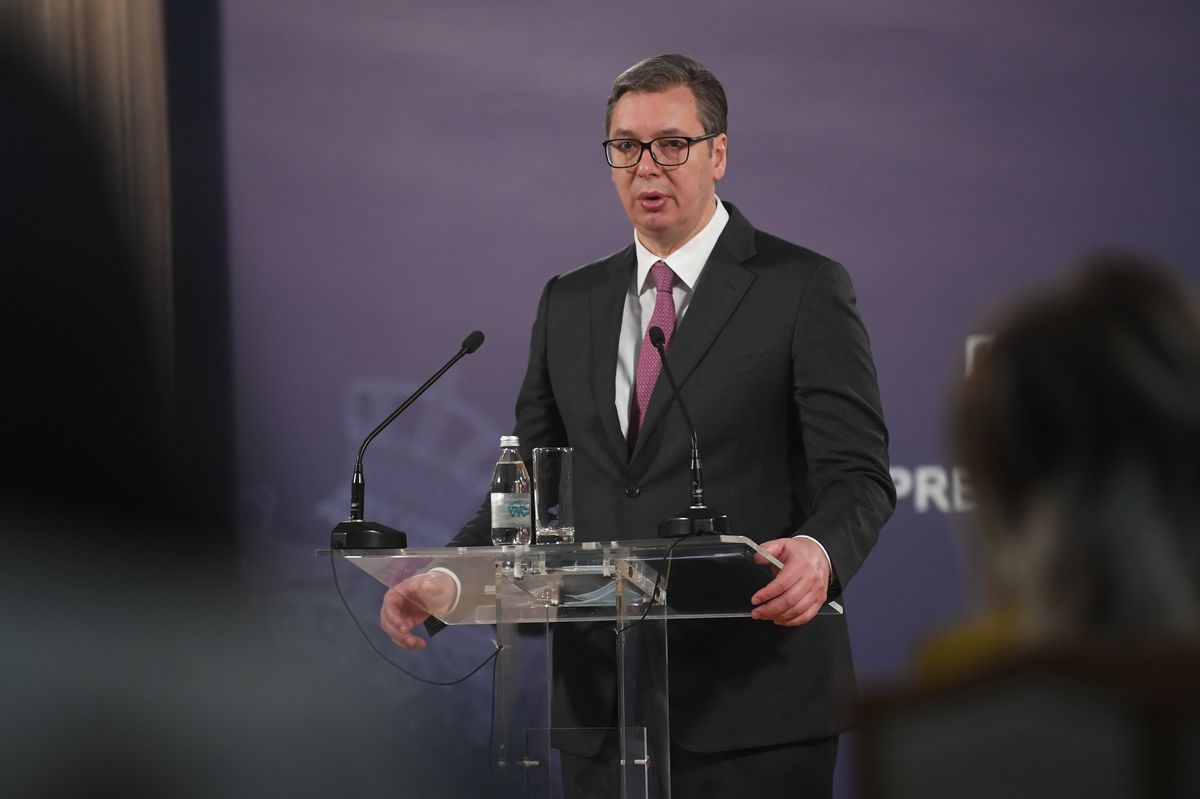
Photo: Presidency of Serbia / Dimitrije Goll
President Vučić thanked Minister Maas and Germany for their support to Serbia in the process of European integration, adding that the rule of law and harmonisation of Serbia's foreign policy with the EU were discussed at the meeting. He pointed out certain problems that Serbia is facing and issues that are set differently in our foreign policy, but he pointed out that, in all matters where it does not endanger the most vital Serbian state and national interests, we will try to achieve as high agreement with EU countries as possible.
"For us, cooperation with Germany is of crucial importance and I believe that it can be even more significant and more important. For us, there is no bigger and more important partner at the EU level," said President Vučić. He pointed out that Serbia will have an absolutely constructive role in the region and that we will preserve the peace.
"We are not interested in the territories of others, but rather in cooperation in the fields of culture, sports, economy. Our goal is a strong, economically sound and successful Serbia. That is crucial," said President Vučić, adding that it is necessary to build peace with Albanians because it is certain that Serbs and Albanians will be the two largest nations in the next 100 years.
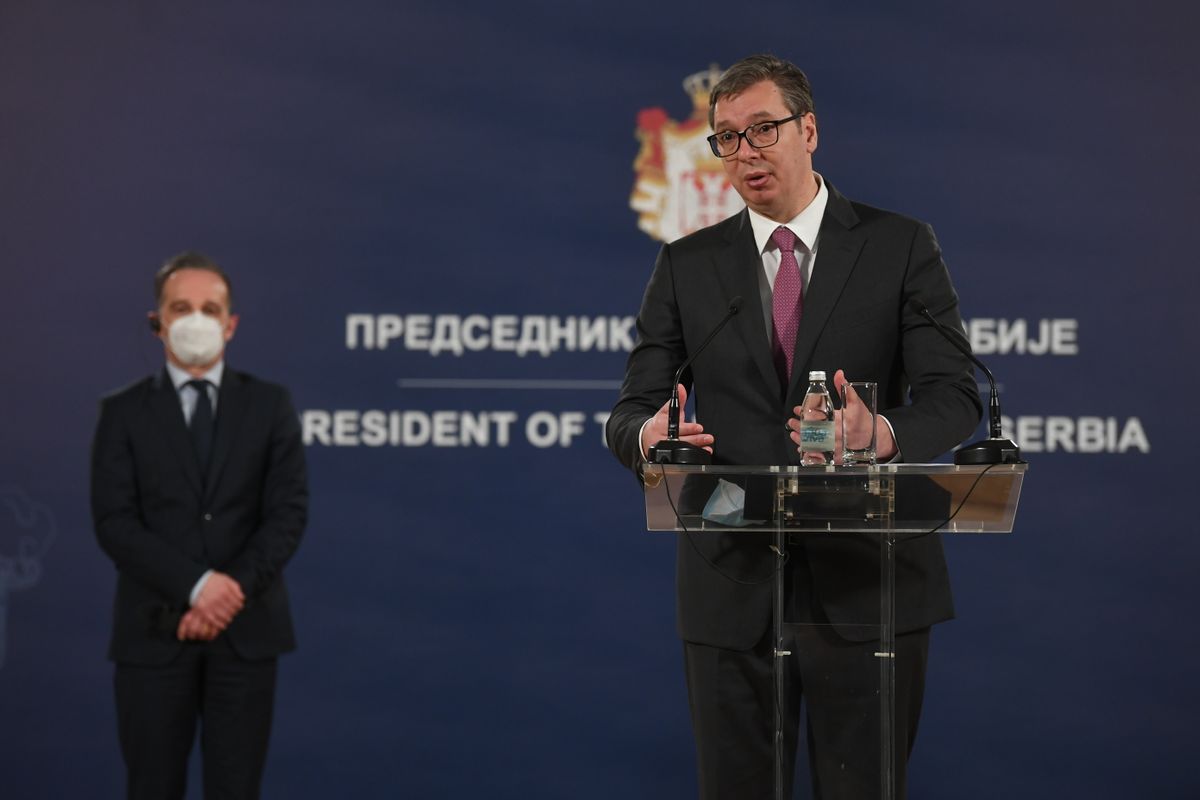
Photo: Presidency of Serbia / Dimitrije Goll
"Serbia is not looking for an apologetic reason to refuse to reach a compromise but believes that a frozen conflict is not the best solution because someone can always 'defrost' it. The essence of progress is in peace," said President Vučić, emphasising the importance of fulfilling all agreements that were signed, primarily the Brussels Agreement, and establishing the Community of Serb Municipalities. He thanked Minister Maas, but also German Chancellor Angela Merkel, for all the help and support for the development of Serbia in all areas.
"Thank you for that. By maintaining stability and working diligently in the future, we will try to show that we deserve the EU membership," President Vučić emphasised.
The Minister of Foreign Affairs of the Federal Republic of Germany, Heiko Maas, pointed out that he is aware of the fact that the process of normalisation of relations with Priština is not easy, but that he believes it also contributes to the development of the economy.
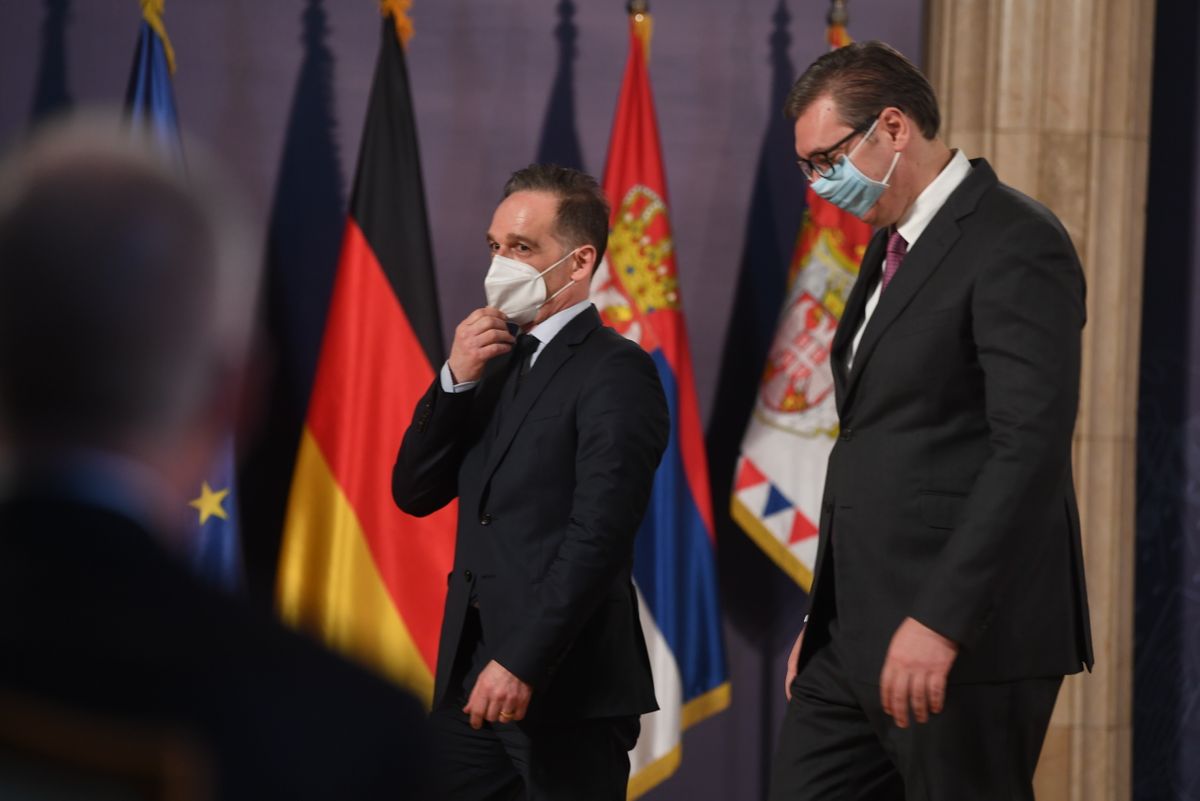
Photo: Presidency of Serbia / Dimitrije Goll
"Serbia and the countries in its neighbourhood have such economic potential and richness of culture, and these are the resources that should be used for the benefit of people in the region, but also in Europe," said Minister Maas, adding that each country in the Western Balkans determines the speed of EU accession and that this requires a reform effort at the national level, especially in key areas such as the rule of law and the fight against corruption. He also said that it is possible to see how successful Serbia is in implementing the vaccination of the population.
"This is being monitored intensively in the EU as well. The more successful we are in vaccination, the easier it will be to return to normal life. I think it is a turning point in the joint fight against this virus. We are convinced that we can overcome the crisis only if we have a fair distribution of vaccines across the world and it should not be combined with political obedience", stressed Minister Maas and stated that the funds of 12 billion euros, which is the amount of the EU aid package for the region, should be well used for economic empowerment of the region, Serbia and the Union.
Belgrade,
23rd April 2021

